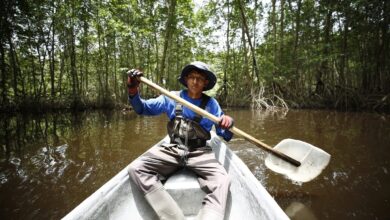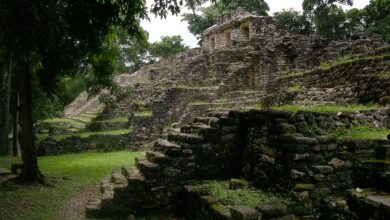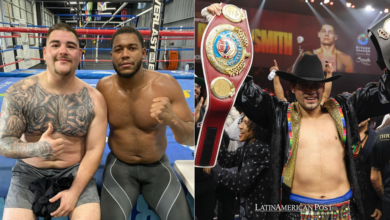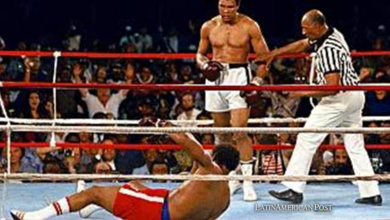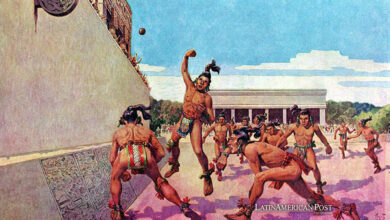Shaun Gill’s Unique Experience as Belize’s Lone Olympic Representative in Paris
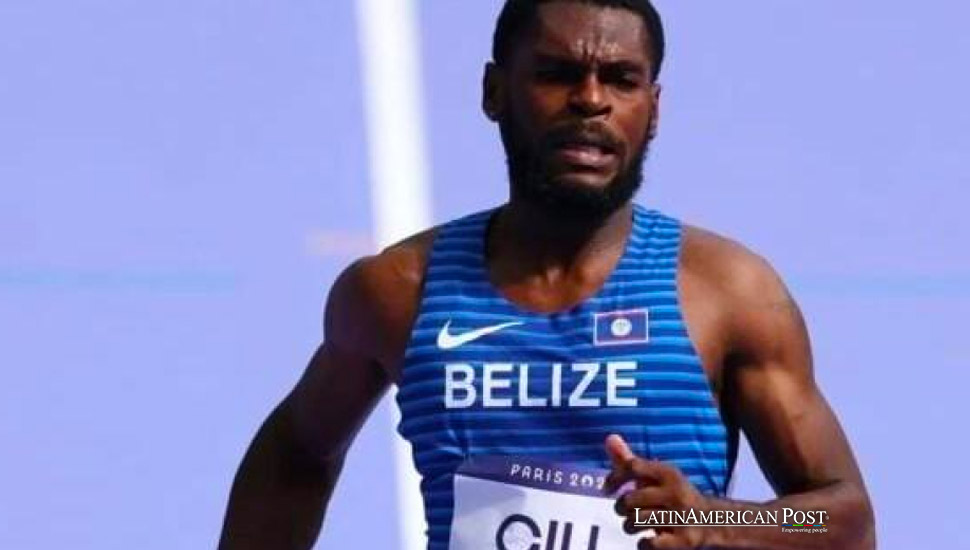
Belizean sprinter Shaun Gill, his country’s sole representative at the Paris 2024 Olympics, shares his unique and overwhelming experience of being a nation’s flagbearer and newfound celebrity, as told in a BBC interview.
In a spectacle dominated by large national teams and global sporting powerhouses, it’s easy to overlook the solitary figures who carry the hopes of entire nations on their shoulders. For Shaun Gill, Belize’s sole representative at the Paris 2024 Olympics, this reality was a source of immense pride and significant pressure. As the only athlete sent by Belize, a small Central American country with a population of less than half a million, Gill was thrust into the spotlight in a way he never anticipated. In an exclusive interview with the BBC, he reflected on the highs and lows of his Olympic journey, offering a rare glimpse into the unique challenges solo competitors face at the world’s biggest sporting event.
Gill’s journey to Paris was not just about personal achievement; it was about representing his entire nation. As the flagbearer for Belize during the opening ceremony, he waved his country’s flag with all the patriotic zeal he could muster as he paraded along the River Seine in the rain. The image of Gill, drenched but determined, quickly went viral, making him an overnight sensation. “Carrying the hopes of a nation was pressurizing,” Gill admitted to the BBC. He acknowledged the weight of expectations that came with being Belize’s only Olympian, a role that was as exhilarating as daunting.
While athletes from larger delegations could share the spotlight and responsibilities, Gill had no such luxury. The task of representing Belize fell squarely on his shoulders. This solitary status brought challenges, from managing the pressure of competing on the world stage to dealing with the sudden surge in public attention. Gill’s experience starkly contrasted with athletes from countries like the United States or the United Kingdom, who had hundreds of teammates to lean on.
The Unlikely Celebrity
Despite the challenges, Gill also found himself enjoying some unexpected perks. As the “most famous man” from Belize, he became a celebrity in the Olympic Village. Fellow athletes and officials sought his autograph, and he even joked with the BBC about needing a security detail to manage his newfound fame. “I had a joke with one of my friends that I may need a security detail,” he laughed.
This level of attention was unprecedented for Gill, who, at 31 years old, had spent much of his athletic career in relative obscurity. The Olympics, however, thrust him into the limelight in a way that no other event could. His story resonated with people not just from Belize but from all corners of the world, particularly those from small nations who saw in him a reflection of their aspirations and challenges.
While the attention and support were uplifting, they also brought a unique set of pressures. Competing as the sole representative of an entire country is a heavy burden, and for Gill, the weight of those expectations was felt acutely. Despite his best efforts, he did not advance to the men’s 100m final, which he attributed in part to the effects of jet lag. “When the performance is lacking, I’m like, ‘Man, I hope I didn’t disappoint you,’” he told the BBC.
Gill’s experience is not unique. Other solo competitors at the Paris 2024 Games, such as Somalian runner Ali Idow Hassan, expressed similar sentiments. Hassan, competing in the men’s 800m, described the loneliness of being a nation’s only athlete at the Olympics. “I feel unfortunate when I’m alone,” he admitted to the BBC. Yet, like Gill, Hassan also found solace in the camaraderie of the Olympic Village, where he befriended athletes from other African nations.
The Support of a Nation: Double-Edged Sword
For athletes like Gill and Hassan, the outpouring of support from their home countries can be both a blessing and a burden. Gill shared with the BBC how he received “thousands” of messages from supporters in Belize, to the point where his phone and Instagram accounts would freeze from the volume of well-wishes. While he appreciated the love and encouragement, the constant attention could be overwhelming. “I had to turn it off at one point because I couldn’t even have a moment of peace to myself,” he said.
This deluge of support is a testament to the pride that small nations feel when their athletes compete on the world stage. However, it also highlights the unique challenges solo competitors face, who must manage their physical performance, and the emotional and mental pressures of representing their entire country alone.
As the Paris 2024 Olympics draw to a close, the focus will inevitably shift from the athletes to the next big event on the global sporting calendar. For Shaun Gill, however, the experience of competing in Paris will leave a lasting impact. Despite not advancing in his race, Gill has no regrets. Instead, he views his Olympic journey as the culmination of years of hard work and dedication, a moment to be cherished regardless of the outcome.
Looking ahead, Gill has decided to retire from competitive racing. His future now lies in training the next generation of athletes in Belize and pursuing his career as an engineer. The skills and discipline he developed as a sprinter will no doubt serve him well in these new endeavors. “I’m ready to give back,” he told the BBC, expressing his desire to help young athletes achieve their dreams.
The Legacy of Small-Nation Athletes
Shaun Gill’s story is one of many that emerged from the Paris 2024 Olympics, highlighting the experiences of athletes from small nations. While they may not walk away with medals, their participation is a powerful reminder of the diversity and inclusivity that the Olympic Games strive to promote. Whether it’s Gill from Belize, Hassan from Somalia, or Romano Püntener from Liechtenstein, these athletes represent the hopes and dreams of their countries on the world stage.
Their stories also underscore the importance of universality in the Olympics, where athletes from all nations, regardless of size or wealth, have the opportunity to compete. As Ali Idow Hassan optimistically predicted to the BBC, “One day, there will be more athletes. Ten athletes, 100 athletes will be here.” It’s a vision that encapsulates the spirit of the Games and the enduring power of sport to bring nations together.
For Shaun Gill, the Paris 2024 Olympics were a culmination of years of dedication and hard work, a once-in-a-lifetime opportunity to represent his country on the world stage. While his journey was filled with challenges, it was also marked by moments of triumph and joy. As he moves on to the next chapter of his life, Gill leaves behind a legacy that will inspire future generations of Belizean athletes.
His story, along with those of other solo competitors, is a reminder that the Olympics are about more than just medals—they are about the stories of perseverance, passion, and pride that define the human spirit. As the world turns its attention to the next Games, the memories of Paris 2024 will continue to resonate, particularly in the hearts of those who cheered for the athletes who carried their nations’ flags alone.

